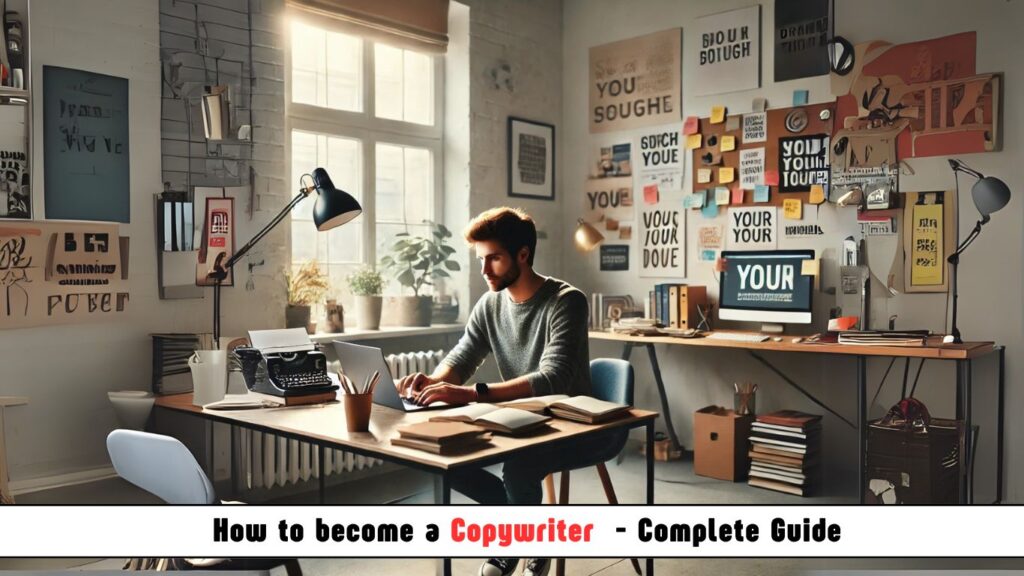
Introduction
Copywriters are the invisible architects behind every memorable slogan, compelling ad, and persuasive website. They combine psychology, creativity, and strategy to make brands unforgettable.
With businesses spending $763 billion annually on advertising (Statista 2024), skilled copywriters are in high demand. This guide explores:
- The evolution of copywriting
- Salary ranges across industries
- Core responsibilities and specialties
- Essential qualifications and skills
- Step-by-step career path
- Future trends in the field
1. History of Copywriting
Early 20th Century: The Birth of Modern Advertising
- John E. Powers (1880s): Considered the first professional copywriter
- Claude Hopkins (1920s): Pioneered scientific advertising with his “reason why” approach
- David Ogilvy (1950s): The “Father of Advertising” who emphasized research-based writing
Mad Men Era (1960s-1980s)
- Bill Bernbach: Revolutionized creative advertising with Volkswagen’s “Think Small” campaign
- Mary Wells Lawrence: First woman to head a major ad agency (Wells Rich Greene)
Digital Age (1990s-Present)
- SEO Copywriting emerged with Google’s rise
- Social Media created demand for platform-specific writing
- AI Tools like ChatGPT are transforming workflows
2. Copywriter Salaries (2024)
Industry Breakdown
| Industry | Entry-Level | Mid-Career | Senior Level |
|---|---|---|---|
| Advertising | $45,000 | $75,000 | $120,000+ |
| Tech/SaaS | $60,000 | $90,000 | $150,000+ |
| E-commerce | $50,000 | $80,000 | $130,000+ |
| Freelance | $30-$150/hr | $75-$250/hr | $200-$500/hr |
Additional Earnings
- Royalties: 1-5% for iconic slogans
- Bonuses: Performance-based incentives
- Passive Income: Selling digital products (templates, courses)
3. Roles & Responsibilities
Core Duties
- Concept Development: Brainstorming campaign ideas
- Writing & Editing: Crafting clear, compelling copy
- Research: Understanding target audiences
- Collaboration: Working with designers, marketers, and clients
Specializations
- Advertising Copywriting: Slogans, scripts, and campaigns
- SEO Copywriting: Optimizing content for search engines
- Technical Writing: Manuals and documentation
- UX Writing: Microcopy for apps and websites
4. Essential Qualifications
Education
- Bachelor’s Degree: English, Journalism, or Marketing (helpful but not required)
- Certifications: Copyblogger, AWAI courses
- Portfolio: More important than degrees
Core Skills
- Persuasive Writing: Mastering features vs. benefits
- Research: Understanding buyer psychology
- Adaptability: Writing for different tones and formats
- SEO Knowledge: Basic understanding of keywords
Tools to Master
- Grammarly: For error-free writing
- Hemingway App: Simplifying complex sentences
- SurferSEO: For content optimization
5. How to Become a Copywriter
Phase 1: Learn the Craft (0-6 Months)
- Study classic ads (Ogilvy, Schwartz)
- Take free courses (HubSpot, Google Digital Garage)
- Practice daily writing exercises
Phase 2: Build Experience (6-18 Months)
- Start a blog or social media presence
- Offer free work to nonprofits
- Contribute to Medium or LinkedIn
Phase 3: Go Professional (18+ Months)
- Create a portfolio website
- Apply for junior positions
- Start freelancing on Upwork or Fiverr
Phase 4: Specialize (3+ Years)
- Choose a niche (healthcare, finance, tech)
- Develop a unique voice
- Build relationships with agencies
6. Future of Copywriting
Emerging Trends
- AI Collaboration: Using tools like Jasper for ideation
- Voice Search Optimization: Conversational writing
- Interactive Content: Chatbots and choose-your-own-adventure stories
Industry Outlook
- 8% growth projected through 2032 (BLS)
- Increased demand for conversion-focused writers
- Higher rates for specialists over generalists
Conclusion
Copywriting remains one of the most accessible yet lucrative creative careers. While AI is changing the landscape, human creativity and strategic thinking are irreplaceable.
Your Action Plan:
- Start writing daily (even if just 100 words)
- Build a portfolio with 3-5 strong samples
- Network with marketing professionals
The right words can move millions – will yours be among them? ✍️













Post Comment